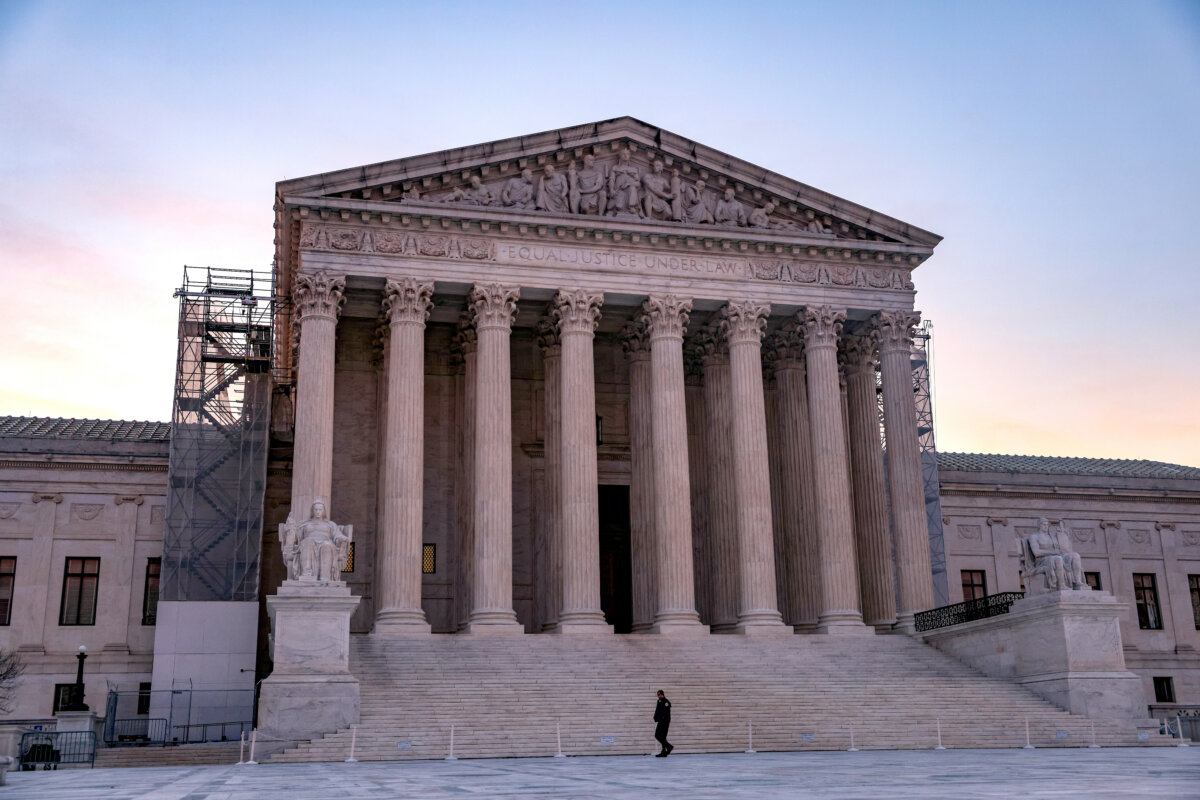| Sen. Ron Johnson (R-Wis.) is a lawmaker who’s not supposed to be on Capitol Hill anymore. |
| Instead, he previously had plans to retire in 2023, when his second term in the upper chamber ended. That didn’t pan out. |
 Sen. Ron Johnson (R-Wis.) speaks during an interview with The Epoch Times at his office in the Hart Senate office building in Washington on March 21, 2024. (Madalina Vasiliu/The Epoch Times) Sen. Ron Johnson (R-Wis.) speaks during an interview with The Epoch Times at his office in the Hart Senate office building in Washington on March 21, 2024. (Madalina Vasiliu/The Epoch Times) |
| Last week, he sat down for an interview with The Epoch Times, during which he reflected on the problems facing America today, and why he felt unable to retire from the U.S. Senate. |
| Namely, he said too many officials in the nation’s capital are covering up deeply entrenched corruption in many corners of the government. |
| Johnson discussed the handling of COVID-19, and the mistreatment of doctors and victims who dared speak out against the official narrative. It was seeing this, Johnson said, that encouraged him to pursue a third term instead of stepping down, as he had intended. |
| “I couldn’t turn my back on it. But in particular, nobody else was advocating for the vaccine injured,” he told The Epoch Times, referencing the thousands of reported injuries that have allegedly occurred after victims took the hastily-developed and minimally-tested COVID-19 mRNA vaccines. |
| Johnson pointed to “the sabotage of early treatments” for COVID-19 and “the vilification of doctors who had the courage and compassion to treat COVID-19 patients.” |
| He mentioned the “cover-up of vaccine injuries” and the harm to the reputations of credible doctors who dissented from the government’s official narrative about the virus that originated in China. |
| Much of the handling of COVID-19, he opined, could be blamed on federal agencies. |
| The Food and Drug Administration and the Centers for Disease Control and Prevention (CDC) are “thoroughly captured by Big Pharma,” Johnson said. |
| “We actually need federal health agencies to guarantee food and drug safety,” he said. “We need a CDC that gathers data on health and then transparently provides that information. |
| “We don’t have that right now.” |
| Johnson discussed the backlash and imprecations he personally received for standing up to the COVID-19 industry and its government backers during the height of the pandemic. |
| “We were falsely accused by Ranking Member Gary Peters (D-Mich.) and by Ranking Member Ron Wyden (D-Ore.) of soliciting and disseminating Russian disinformation,” Mr. Johnson said. |
| That wasn’t exactly true—but legacy media ran the stories against him anyway. |
| Regardless of such coverage, Johnson made clear that he intends to continue his investigations and to fight to help define the mission of Senate Republicans moving forward. |
| —Mark Tapscott and Joseph Lord |
 The U.S. Supreme Court in Washington on March 26, 2024. (Jemal Countess/Getty Images for Women’s March) The U.S. Supreme Court in Washington on March 26, 2024. (Jemal Countess/Getty Images for Women’s March) |
| SCOTUS CASE ‘THREATENS CHAOS’ TO IMMIGRATION SYSTEM |
| A complex upcoming Supreme Court case could weaken a key tool the government uses in immigration law enforcement and throw the system into chaos. |
| The question before the court revolves around spousal sponsorship, the idea that a naturalized or natural born U.S. citizen can “sponsor” an alien to receive a visa to the U.S. More specifically, the question is whether consular officers can deny spousal sponsorship visas on the basis of tattoos thought to be associated with the brutal MS-13 gang. |
| The case at hand deals with the doctrine of “consular nonreviewability,” which is the legal principle that a consular official’s decision to refuse a visa to a foreigner is not subject to judicial review. |
| Supporters of the doctrine say that ending it would harm the immigration system and cripple its ability to conduct business. Opponents, primarily those who favor expanded immigration, say relaxing it respects constitutional rights and the institution of marriage. |
| The issue is complex, in part, because the doctrine of consular nonreviewability doesn’t have a direct basis in any law passed by the U.S. Congress; rather, it was a doctrine created by a judge. |
| The Constitution gives Congress exclusive authority to create policies about the admissibility of individuals to the United States. At the same time, the legislative branch delegates the power to implement those policies to the executive branch. |
| The key players in the case, Department of State v. Munoz, are the State Department and Luis Asencio-Cordero, a Salvadoran national whose visa was denied due to tattoos which, according to a consular officer, indicate gang membership. |
| His wife, U.S. citizen Sandra Munoz, challenged the consular decision in court, arguing that her rights as a citizen were violated. |
| A circuit court later found that Munoz has a substantial “liberty interest” in living in the U.S. with her husband. It was additionally ruled that consular nonreviewability doesn’t apply in this case due to the government’s failure to give a timely notice of the reason the application was denied. |
| On the other side of the issue, some judges have argued that “timeliness” is a requirement “with no basis in law.” Requiring such speedy notices, one judge said, would be “an administrative nightmare.” |
| Courts have already been slowed by an unprecedented influx of as many as 10 million illegal aliens into the U.S. since President Joe Biden took office. |
| According to former immigration judge Matt O’Brien, a decision by the Supreme Court to strike down or modify consular nonreviewability “threatens chaos” and may drive the business of the courts “to a halt.” |
| Still, Munoz contends a fundamental “liberty interest” in residing with her husband in the U.S., and it’ll be up to the Supreme Court to determine whether the century-old doctrine will stand. |
| —Matthew Vadum and Joseph Lord |
| BOOKMARKS |
| Republican lawmakers indicated yesterday that they had received a commitment from House Speaker Mike Johnson (R-La.) to hold a vote on Ukraine funding after the Easter recess, The Epoch Times’ Joseph Lord reports. Ukraine funding has been held up in Congress for months due to bicameral and partisan disagreements. |
| Biden is seeking to woo former supporters of Nikki Haley in a new ad, The Epoch Times’ Naveen Athrappully reported. In the ad, the Biden team cited past comments made by former President Donald Trump suggesting he “didn’t need too many” Haley supporters. |
| Robert F. Kennedy Jr.‘s running mate pick has drawn fire from all sides, The Epoch Times’ Jeff Louderback reported. His pick for VP, Silicon Valley lawyer and entrepreneur Nicole Shanahan, drew mock praise from Trump and alarm bells from the Biden camp, who fear Kennedy’s campaign will hurt Biden’s reelection bid. |
| The White House lashed out at those criticizing its decision to name Easter Sunday as “Transgender Day of Visibility,” The Epoch Times’ Naveen Athrappully reported. A White House spokesperson dismissed these criticisms as “cruel” and “hateful.” |
Thank you for being a subscriber
If you enjoy what you’re reading, please consider forwarding this email to someone who might find it informative. Your Feedback
Send us your tips via constitutionave@epochtimes.us or text (347) 705-7660. This newsletter couldn't happen without our editors Cathy He, Richard Moore, and Ivan Pentchoukov. | | |